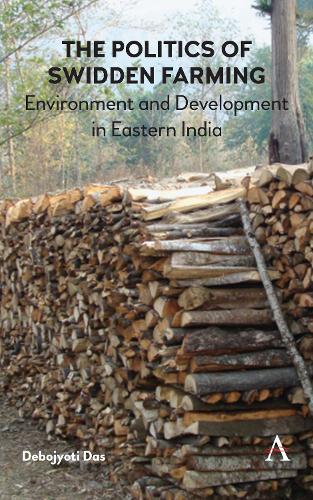
The Politics of Swidden farming: Environment and Development in Eastern India
(Hardback)
Publishing Details
The Politics of Swidden farming: Environment and Development in Eastern India
By (Author) Debojyoti Das
Anthem Press
Anthem Press
28th September 2018
United Kingdom
Classifications
Professional and Scholarly
Non Fiction
Sociology and anthropology
631.5/8180954165
Physical Properties
Hardback
272
Width 153mm, Height 229mm, Spine 26mm
454g
Description
The Politics of Swidden Farming, Environment and Development in Eastern Indiaoffers a new explanation for the changes taking place in slash-and-burn (jhum or swidden) farming in the hills and upland areas of eastern India through an ethnographic case study. Today market-led agriculture is transforming land and labour relations. Jhum cultivators are beneficiaries of state schemes, including internationally funded, community-driven development or biodiversity conservation programmes.
The book traces the story of agroecological change and state intervention to colonial times (including post Indian independence) when Nagaland was seen as the frontier of state and civilization. Contemporary agrarian change can be understood by contextualizing farming not just in terms of the science and technology of agriculture or conservation/biodiversity but also in terms of technologies of rule. For the colonial administrators of the Naga Hills who saw their role partially in terms of rescue and record ethnography jhum practices were part of backward Naga customs and traditions. Improving farming practices was bound up with indirect rule as a distinct process of governance involving forms of knowledge and intervention. It was political expediency rather than imperial science that changed local agroecologies and pressurized shifting cultivation. Crucially, neighbouring Naga terrace rice cultivators were promoted as offering a more civilized yet local alternative.
Reviews
The Politics of Swidden Farming is a solid piece of scholarship. It narrates the long history of the Yimchunger Naga through the prism of jhum, or swidden agriculture. While jhum has historically been dismissed and derided by the powerful as an ignorant and savage-like and ecologically destructive form of agriculture derogatorily also labelled slash and burn Das brings to light how among the Yimchunger Naga it is in fact an evolving and dynamic practice shaped by complex historical, social, and political factors. It is impressively well researched and, as such, amply demonstrates the enduring relevance for scholars of agrarian change of combining rigorous historical work with long-term ethnographic eldwork. Kenneth Bo Nielsen, University of Oslo
Author Bio
Debojyoti Das is an AHRC-GCRF postdoctoral associate at Bristol University, UK. He received his PhD in social anthropology from the School of Oriental and African Studies, University of London, and has held several prestigious fellowships and consultancies at Yale, Sussex and the University of London. Das has published widely in journals such as the European Bulletin of Himalayan Research, Journal of Borderland Studies, Journal of the Indian Ocean Region and Economic and Political Weekly besides contributing to blogs.
